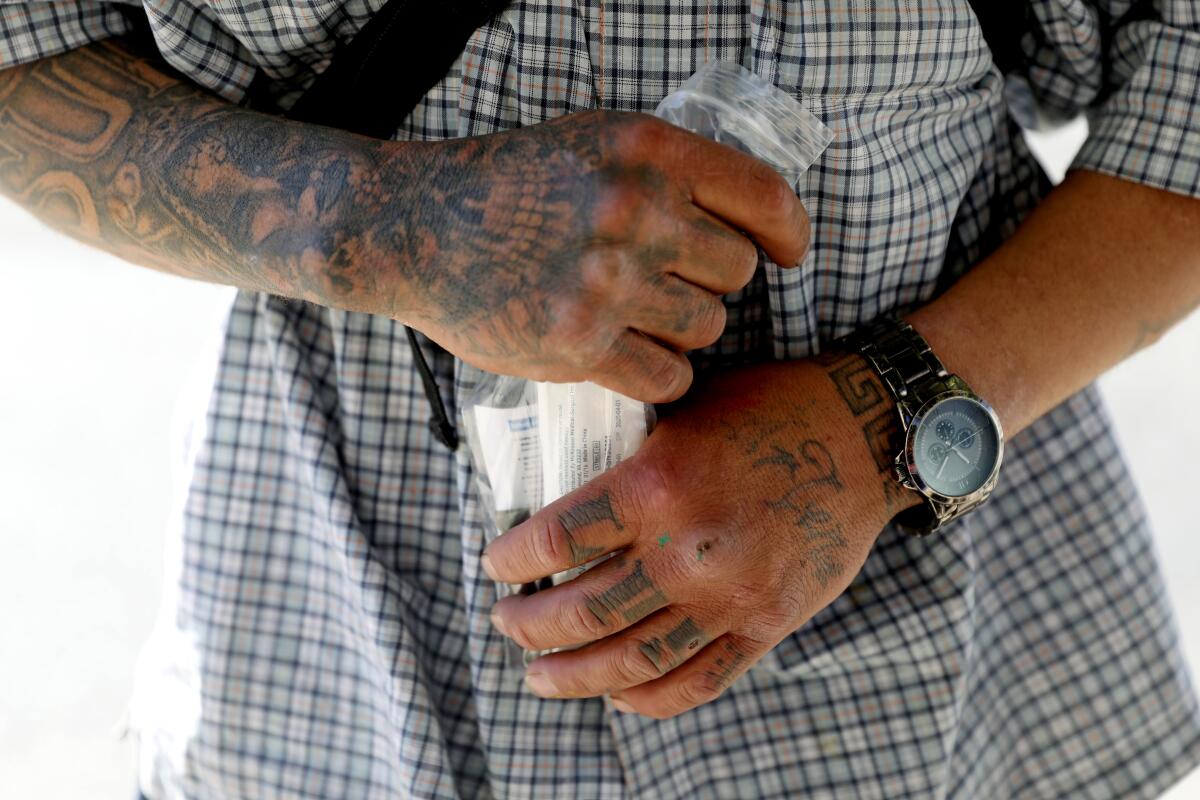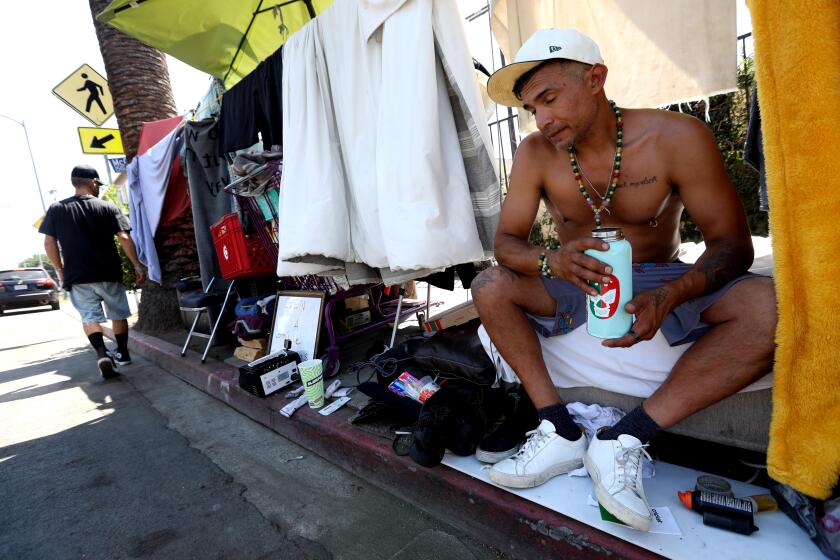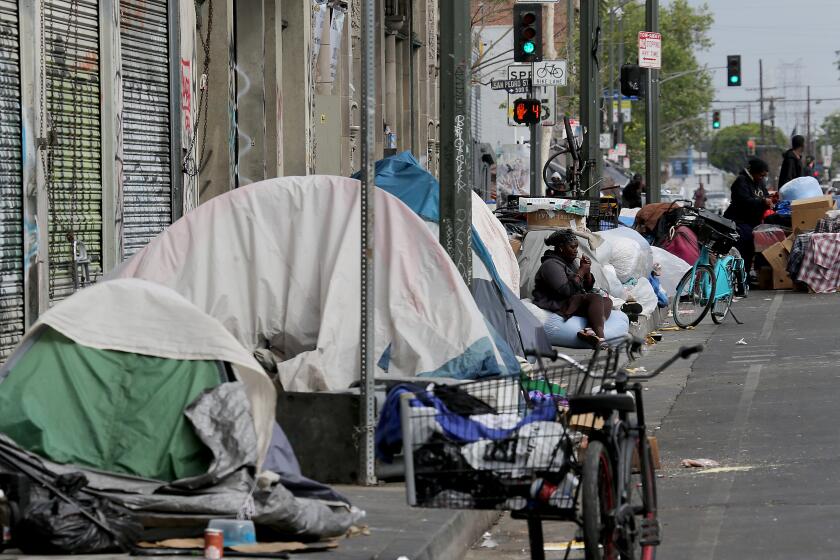Startling increase found in deaths of Orange County homeless people. Drugs are the main cause

- Share via
More homeless people in Orange County are dying each year, and accidental drug overdoses involving fentanyl are a leading reason why, according to a new county report.
Within a 10-year span, the report found, the number of deaths of people experiencing homelessness more than quadrupled, with 395 deaths recorded in the county in 2021.
By 2021, the report found, 36% of the deaths of homeless people in the county were directly linked to fentanyl. An additional 8% were linked to overdoses involving other drugs.
“The rise in the number of deaths of people experiencing homelessness is concerning,” Orange County Sheriff Don Barnes said in a statement. “Most troubling is the significant increase we are seeing in fentanyl-related deaths.”
Homeless people for nearly half of the deaths due to heat last year in Los Angeles County, according to the coroner’s office.
The findings were issued in a report by Orange County’s Homeless Death Review Committee, commissioned by Barnes in 2022. The committee is made up of experts, including law enforcement, health and nonprofit officials, to explore the causes of deaths among the county’s homeless.
The report issued by the committee mirrors what communities across the U.S. are experiencing with fentanyl’s increasing and ominous appearance in street drugs. In 2012, the Centers for Disease Control and Prevention recorded 1,615 overdose deaths in the U.S. linked to fentanyl. By 2021, the number of deaths due to synthetic opioids, primarily fentanyl, was more than 71,000.
Orange County’s Homeless Death Review Committee’s first report, released Monday, shows the county’s homeless population has been significantly impacted by the drug’s expanding availability.
The report found that the number of deaths each year has been steadily rising since at least 2010, but with a significant increase in 2020, the first year of the COVID-19 pandemic. In that year, 338 homeless people died, a 55% increase from the previous year.
According to the report, the number of accidental deaths that year also surpassed the number of natural deaths.
In 2020, 235 of the 338 recorded deaths were considered accidental. Seventy-six percent of those accidental deaths were drug-related, the report found.
The second cause of accidental deaths among the homeless was being hit by a vehicle.
From April 1, 2020, to March 31, 2021, 1,988 deaths of homeless people were reported, including 715 overdose deaths.
The report also found homicide and suicide rates among the homeless were higher than the national rate.
The number of hospitalizations also ballooned over the 10-year span. While 727 hospitalizations of homeless people in the county were recorded in 2011, by 2021 the number of admissions was 5,649. Mental illness was the main cause, according to the report.
The commission recommended that the sheriff push for legislation that would expand the data that are legally available for the commission to examine specific deaths. It’s also recommending that county agencies expand opportunities for substance abuse treatment and expand the availability of Narcan, the drug that is used to reverse fentanyl overdoses.
The commission is also asking to look at sentencing laws that would require drug treatment programs as part of crime sentences.
A study by the L.A. County Department of Public Health last year found deaths of homeless people in that county soared by 56% in the year after the start of the pandemic, driven primarily by an increase in overdoses.
In the year surveyed, 179 homeless people died of COVID-19, accounting for about a quarter of the increase in overall deaths from the year prior. A surge in fatal overdoses was likewise the primary driver of the increase. In the pre-pandemic year, the Department of Public Health reported just over 400 overdose deaths. In the year after the outbreak, that figure nearly doubled, to 715.
The numbers in L.A. County mirror figures recorded in San Francisco over a similar period.
More to Read
Sign up for Essential California
The most important California stories and recommendations in your inbox every morning.
You may occasionally receive promotional content from the Los Angeles Times.













